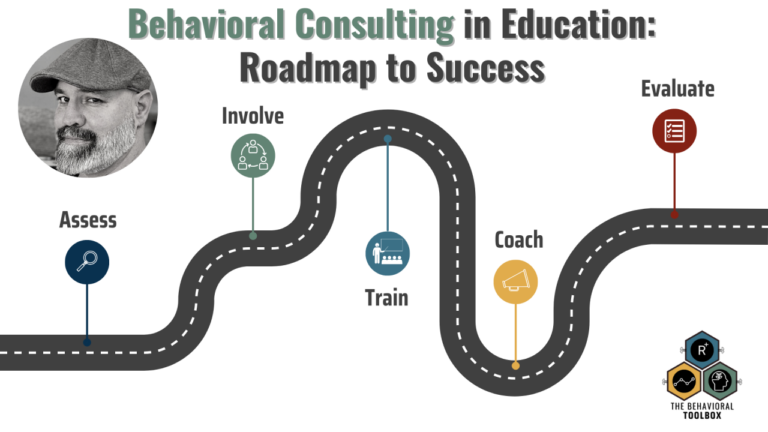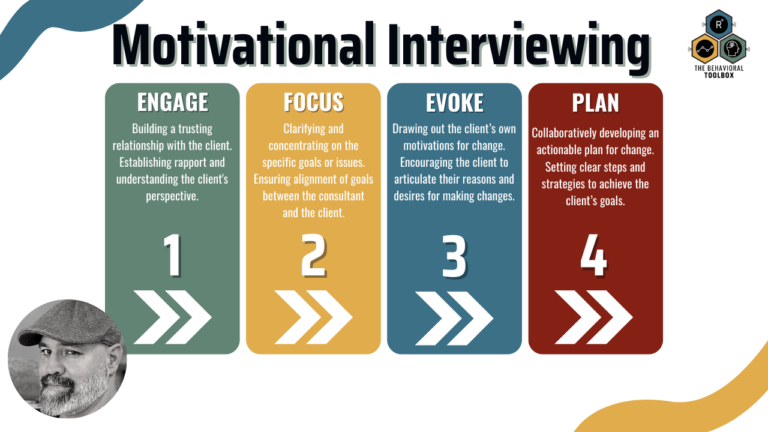7 Signs You Can Skip the FBA: Streamlining Classroom Behavior Management
Imagine this: It’s Monday morning, and you, a dedicated behavioral consultant, find yourself navigating the busy hallways of Elmwood Elementary, coffee in hand, ready to tackle the week’s challenges. Your schedule is packed with meetings, classroom observations, and piles of paperwork that seem to regenerate magically overnight. Amidst this controlled chaos, you receive an email from a well-meaning but stressed-out principal, Mrs. Johnson, detailing the disruptive behavior of one of her students, Alex. According to Mrs. Johnson, “The teacher has had it up to here. And so have I!” The behaviors in question—fidgeting, occasional talking out of turn, and difficulty staying on task—are not uncommon in the classroom environment, yet they’ve prompted a request for a full Functional Behavioral Assessment (FBA) as this is often the “go-to” request by schools seeking support from behavioral consultants.
As you set the wheels in motion for the FBA process, a sense of déjà vu settles in. Collecting data, interviewing teachers, observing Alex in various settings, coordinating with school psychologists, and sifting through layers of information to identify the function of Alex’s behavior—it’s a path you’ve walked many times. Each step is important, requiring meticulous attention to detail and hours of work, not to mention the emotional toll of witnessing the struggle of both student and teacher as they navigate this process.
Fast forward several weeks: The assessment is complete, and a Behavior Intervention Plan (BIP) is in place. Yet, as you review the outcomes and the considerable resources expended—time, effort, and school funds—a nagging question arises: Was all of this truly necessary? Could the minor adjustments to Alex’s environment or routine, perhaps a more structured task organization or scheduled breaks for movement, have mitigated these behaviors without the need for such an extensive assessment? The thought lingers, a reminder of the potential for a more streamlined approach.
The FBA Reflex

In the world of behavior management, there exists a common reflex among educators and behavioral consultants: the leap toward Functional Behavioral Assessments (FBAs) and Behavior Intervention Plans (BIPs) at the slightest hint of disruptive behavior beyond the norm. This approach, while steeped in meticulous analysis and the best of intentions, mirrors a scenario where confronted with a headache, one skips the aspirin and heads straight for surgery. A drastic measure, to be sure, especially when simpler, less invasive remedies might suffice. In this edition of The Behavioral Toolbox Newsletter, I want to shine a light on instances where the scalpel of FBAs and BIPs might be premature, and advocate instead for a more measured, strategic approach to classroom behavior management.
The allure of FBAs and BIPs is undeniable; they offer the precision of a surgeon’s knife, cutting to the heart of behavioral issues with tailored interventions. Yet, this precision comes at a cost—time, effort, and resources that, in many cases, could be more effectively employed elsewhere. Like surgery, the FBA and BIP process is intensive and invasive, demanding significant commitment from educators already stretched thin. This approach assumes a level of severity that may not always be present, overlooking simpler, less resource-intensive solutions that could address the issue with equal efficacy.
Why consider an alternative?

Because, in the world of behavior management, the principle of “less is more” often holds true. Practical environmental adjustments can serve as the aspirin to the headache of classroom disruptions—simple, effective, and far less taxing than the exhaustive process of FBAs and BIPs.
To discern when it might be prudent to put aside the formal assessment and intervention planning process for more immediate and practical strategies, consider the following five key indicators:
- The behavior is new or recently emerged. Like a sudden headache, new behaviors might be reactions to temporary conditions or changes in the environment that can be easily remedied without extensive intervention.
- The behavior is mild to moderate, but not endangering the student or others. Not every behavioral challenge necessitates the full gamut of assessment and intervention. Sometimes, small tweaks to the environment or routine can alleviate lots of behavioral challenges.
- There’s a clear antecedent or trigger that can be modified. If a specific, alterable situation consistently precedes the behavior, direct modification of this trigger can be a straightforward and effective solution.
- Resource constraints. When time, personnel, and financial resources are limited, efficiency becomes paramount. Identifying strategies that require less resource investment while still promising positive outcomes is crucial.
- Past interventions have yielded minimal success. If previous attempts at more intensive interventions have fallen short, it may indicate that the issue lies not in the behavior itself but in the approach to addressing it.
- Multi-Student Challenges: When more than one student in a classroom is exhibiting behavioral challenges, the complexity of conducting FBAs multiplies. Not only does this scenario increase the time and resources required, but it also raises questions about the efficiency of addressing issues on an individual basis. This collective struggle might indicate broader environmental or systemic factors at play, which a singular, student-focused FBA might not adequately uncover or address.
- Teacher Engagement and Capacity: Teachers, already stretched thin by their responsibilities, may find the additional demands of engaging in the FBA process and executing a complex BIP daunting. This reluctance or inability to engage fully with the process can undermine the potential benefits of an FBA, suggesting that, in some cases, alternative strategies that require less teacher effort and are more in line with their current capacity may be more appropriate and effective.
By recognizing these indicators, educators and consultants can more accurately gauge when to opt for simpler, strategic adjustments over the comprehensive analysis and intervention planning of FBAs and BIPs. This is not to say that FBAs and BIPs lack value; for severe and complex behavioral issues, they remain an indispensable tool in the educator’s arsenal. However, for the everyday challenges that arise within the classroom, there exists a spectrum of interventions, and selecting the most appropriate tool for the task at hand is the hallmark of effective behavior management.
5 Strategies to Try Instead

With close to 90 combined years working or supporting education, Matt Cicoria, Anika Costa, M.S.Ed, BCBA and I continue to advocate for and develop more practical approaches to addressing classroom behavior; as such, we’ve just published a new online course to guide educators and behavioral consultants along this path. “WHEN NOT TO FBA: 5 QUICK STRATEGIES FOR IMPROVING BEHAVIOR IN THE CLASSROOM” introduces a paradigm shift, championing practical, evidence-based strategies designed to enhance the classroom environment swiftly and sustainably. This course represents a step towards a more efficient, effective approach to behavior management, where the choice of intervention is as thoughtful and tailored as the strategies it promotes.
https://www.linkedin.com/embeds/publishingEmbed.html?articleId=7260811292807212392&li_theme=light
About the Author
Specializing in human performance, coaching, and organizational leadership, Dr. Paul “Paulie” Gavoni is a behavior scientist and educator who has worked across education and human services for almost three decades. In this capacity, he has served the needs of children and adults through various positions, including COO, Vice President, Director of School Improvement, Leadership Director, Professor, Assistant Principal, School Turnaround Manager, Clinical Coordinator, Therapist, District Behavior Analyst, and Director of Progam Development and Public Relations at PCMA. Dr. Gavoni is passionate about applying Organizational Behavior Management (OBM), or the science of human behavior, to make a positive difference in establishing safe, productive, and engaging environments that bring out the best in faculty and staff so they can bring out the best in the learners they serve. He is an active board member of the Opioid Awareness Foundation and World Behavior Analysis Day Alliance.
Known for his authenticity and practical approaches, Dr. Gavoni is the host of the Top 1.5% globally ranked Crisis in Education Podcast and a sought-out speaker at various Educational and Behavior Analytic Conferences Internationally. He a the Wall Street Journal and USA Today best-selling co-author of The Scientific Laws of Life & Leadership: Behavioral Karma; Quick Wins! Accelerating School Transformation through Science, Engagement, and Leadership; Deliberate Coaching: A Toolbox for Accelerating Teacher Performance; and MMA Science: A Training, Coaching, and Belt Ranking Guide. Dr. Gavoni is proud to introduce OBM and Applied Behavior Analysis to worldwide audiences through his numerous publications and his work with PCMA to create productive, safe, and positive cultures.
Beyond his work in education and human services, Dr. Gavoni is also a former Golden Gloves Heavyweight Champion and a highly respected striking coach in combat sports. Coach “Paulie Gloves,” as he is known in the Mixed Martial Arts (MMA) community, has trained world champions and UFC vets using technologies rooted in the behavioral sciences. Coach Paulie has been featured in the books Beast: Blood, Struggle, and Dreams a the Heart of Mixed Martial Arts, A Fighter’s Way, and the featured article Ring to Cage: How four former boxers help mold MMA’s finest. He is also an author who has written extensively for various online magazines such as Scifighting, Last Word on Sports, and Bloody Elbow, where his Fight Science series continues to bring behavioral science to MMA. Finally, Paulie was also a featured fighter in FX’s highest-rated show at the time, The Toughman, and as an MMA coach in the Lifetime reality series Leave it to Geege.





